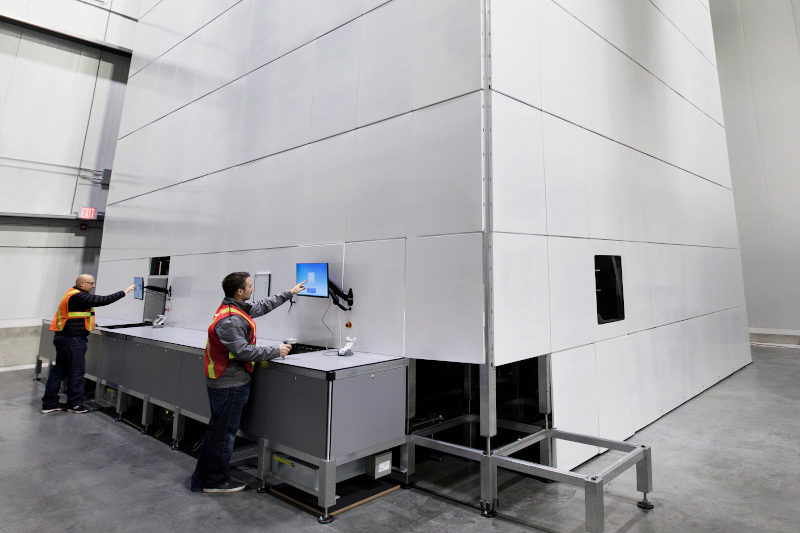As the COVID-19 pandemic continues to impact the global economy, consumer behaviour continues to be driven by new personal circumstances, such as changes in discretionary income and shifting priorities.
“There are some great companies in Canada, and they will only do better in the current environment.”
According to PwC’s latest Canadian holiday outlook survey, this holiday season, online shopping will continue to outweigh in-store purchases, as consumers prioritize convenience, health, and safety. These predictions are buttressed in part by Canadian retail e-commerce sales reaching a record $3.9 billion in the first few months of the pandemic alone.
PwC’s report advised retailers that in order to stay competitive this holiday, particularly in the new reality of COVID-19, retailers must invest in digital strategies.
While COVID-19 has created countless challenges to in-person retail, from safety to delivery, it has also accelerated the evolution of retail from a technological perspective, said Andrew Popliger, PwC partner and national tech sector leader.
“Naturally, due to the acceleration of online shopping, what we thought would take five years has happened in the last seven months,” Popliger told BetaKit. “There will be acceleration to digital and online shopping, which is all technology-enabled.”
Popliger told BetaKit that there is a great deal of opportunity for entrepreneurs to benefit from an industry shifting right beneath their feet, and play a critical role in the ongoing transformation.
Enhancing the online shopping experience
Consumers now seek richer experiences when they shop, and with the absence of brick-and-mortar, the digital shopping experience requires tools that are immersive and informative.
“There are definitely a lot of changes going on in the industry and technology is playing a very significant role.”
PwC’s holiday outlook report notes that for the upcoming season retail businesses should focus on creating “digitally focused, contact-free experiences.” In the era of COVID-19, that might mean using natural language processing for conversational e-commerce or leveraging artificial intelligence to create hyper-personalized shopping experiences.
Over the last few years, Canada’s retail juggernaut, Shopify, has significantly invested in augmented reality (AR) technology to improve how its merchants display products to customers.
In 2018, the company launched its AR Quick Look tool, allowing users to preview products in AR directly from the Safari app. The following year, Shopify rolled out AR and virtual reality capabilities into product pages. During that launch, Cynthia Savard Saucier, director of UX and channels at Shopify, called immersive shopping experiences “the future of e-commerce.”
It’s not just the tech giants like Shopify that stand to benefit from this trend. Ottawa-founded Threekit has developed a product visualization platform and specifically targets e-commerce brands. Using Threekit’s platform, businesses can upload product information and design files to instantly create interactive and photorealistic 3D visuals for a product’s material, colour, and configuration options.

But the online retail experience goes far beyond product display. Across the country, startups are adopting and productizing innovative models for how consumers purchase their products. Perhaps the most notable development in this sphere is the rise in subscription business models.
Purveyors of subscription models tout the convenience and cost-saving benefits of recurring payment plans. According to a 2018 study by Mckinsey & Company, 15 percent of online shoppers have signed up for subscriptions to receive products on a recurring basis.
Canadian tech companies are beginning to take notice. This year alone, Montreal-based point-of-sale startup Lightspeed launched into subscriptions with new software to help retailers manage recurring monthly billing.
Shopify also offers an app to merchants for recurring payments and orders, in addition to the Shopify Plus solution created by Manitoba-based tech startup Bold Commerce, which allows merchants to set up and manage subscription programs.
When it comes to the factors influencing consumer purchases, PwC’s report identified a significant generational divide: younger generations are much more likely to be influenced by online and social media advertising.
“You’re seeing a lot of people buying products through social media, where they’re sharing their experiences and getting influenced by certain products,” Popliger noted. “That’s a whole new trend that I think is currently growing and will grow even more significantly during the holiday season and beyond.”
RELATED: Shopify pens commerce deal with TikTok
PwC’s report found that among all demographics, Facebook, YouTube, and Instagram lead the way in terms of influence. This is another trend being actively pursued by the likes of Shopify, which has launched commerce partnerships with sizeable social media firms YouTube and TikTok, and launched a shop feature for Facebook and Instagram this year.
Popliger also highlighted the role of data in personalizing the shopping experience and allowing consumers to make more informed decisions around their purchases. He noted that, conversely, data can also play a role in helping retailers to target customers more accurately.
But with more data comes increased privacy concern. Similar to healthtech and edtech (two other sectors significantly disrupted by the pandemic), PwC’s holiday outlook report notes that privacy considerations around retail will be critical as consumers shift to online shopping.
Popliger said that with privacy concerns rising significantly in the last seven months, protecting consumer data should be a new imperative for companies. The federal government has also begun to act on these concerns, introducing new legislation this week requiring companies to be more transparent about the collection and use of individuals’ data, with fines if they do not comply.
The supply chain’s digitization
Another notable transformation in retail during the pandemic is the integration of the front and back of the house from a data perspective. Tech-based solutions have the ability to turn inventory management from something checked on occasionally, to something that offers real-time insight to augment operations and forecasting.
“Canadian e-commerce companies are well-positioned to help retailers, in the holiday season, get online.”
Popliger highlighted the role of the Internet of Things, artificial intelligence, and blockchain technology in addressing inefficiencies in logistics operations such as warehouse administration and last-mile optimization.
“The whole logistics industry is going through a significant digital transformation to get delivery speeds faster, lower cost on delivery, and also reduce the environmental impact of deliveries,” he said.
“There are definitely a lot of changes going on in the industry and technology is playing a very significant role,” he added.

Canadian tech companies are already playing a role in the digital transformation of logistics, such as Attabotics, a Calgary-based startup that has created a robotic warehousing and fulfillment system. Last year, Toronto-based blockchain startup DLT Labs partnered with Walmart Canada to launch a blockchain-based freight and payment network for the retail giant.
Earlier this year, Shopify officially launched its $1 billion fulfillment network, with COO Harley Finkelstein specifically citing COVID-19’s disruption of global supply chains as a validation of the company’s decision to expand into this space. The expansion into warehouse-based fulfillment accelerated Shopify’s rivalry against Amazon, which owns a great deal of its supply chain.
RELATED: Shopify to offer business account, card, and rewards program with new Shopify Balance
Those already in the business of fulfilling online orders also require options to finance their inventory. Retail tech startups in Canada have launched headfirst into this space as well. Last month, Clearbanc launched a program whereby the firm purchases inventory directly from suppliers and companies pay back Clearbanc after customers buy their products.
The model is based on invoice factoring, a form of debtor finance where a business sells its accounts receivable to a third-party at a discount. Shopify and Montreal-based FundThrough also base some of their financing options to retail businesses on invoice factoring.
Alex Danco, who pens weekly business newsletters, has predicted a future battle for debt with the rise of models including invoice factoring, and that a realignment between financial and production capital will “hit like an earthquake.”
Moving brick-and-mortar online
Web-based platforms have dramatically compressed the time it takes to launch a retail business. In Canada, e-commerce sales have more than doubled year over year, with a 110 percent increase compared with May 2019.
“Due to the acceleration of online shopping, what we thought would take five years has happened in the last seven months.”
“Typically, it takes retailers months to launch an online storefront and add another prong to the sales or fulfillment channel, but during COVID-19, we’ve seen retailers dramatically compress that timeline to weeks and even days to mitigate lost sales from the halt of in-store operations,” wrote Michele Dupre, group vice president at Verizon Business, in a recent article on retail transformation.
In Canada, this transition has been helped by projects like Digital Main Street’s ShopHERE powered by Google program. Initially launched in Toronto in May before rolling out nationally, ShopHERE’s goal is to help local independent small businesses and artists that currently do not have the resources to build an online store. Web developers and students pitch in to build and launch online stores through the program.
Canadian tech startups have also stepped up during this time. In June, Toronto-based marketing software startup CrowdRiff launched Localhood, a free online platform intended to help customers discover and support small businesses during the COVID-19 pandemic by sharing “visual web stories.”
RELATED: ShopHERE launches in Halifax with $100,000 in federal funding to help small businesses
“Canadian e-commerce companies are well-positioned to help retailers, in the holiday season, get online,” said Popliger. “Those companies will also do well, by selling more products than they would have.”
Specific areas where technologies can enable this shift for brick-and-mortar businesses include the optimization of in-store or customer personalization, curbside pick-up, and contactless service and delivery.
PwC identified curbside pickup as a major trend accelerated by the pandemic, with 33 percent of shoppers choosing this method for their online purchases, compared to 13 percent last year.
Shortly after listing on the New York Stock Exchange in September, Lightspeed CEO Dax Dasilva told BetaKit of his desire to focus on omnichannel solutions during the COVID-19 pandemic. The company has also recently discussed its integrations aimed to make curbside pickup easier for retailers.
Retail’s digital shift will ultimately be a ‘win-win’
With the constant uncertainty caused by the COVID-19 pandemic, people are changing the way they buy. The pandemic has erupted challenges, losses, delays, and compromises to numerous sectors.
At the same time, a number of industries have seen a decade’s worth of disruption and transformation occur over the course of a single year. Popliger said COVID-19 has created a situation where retail and tech can increasingly benefit from a more symbiotic relationship.
“It’s a win-win situation for those retail companies and those e-commerce companies. Canada has a very innovative tech scene, as we know,” said Popliger.
“There are some great companies in Canada, and they will only do better in the current environment.”

